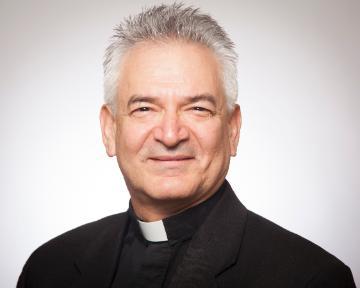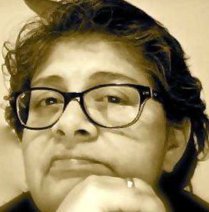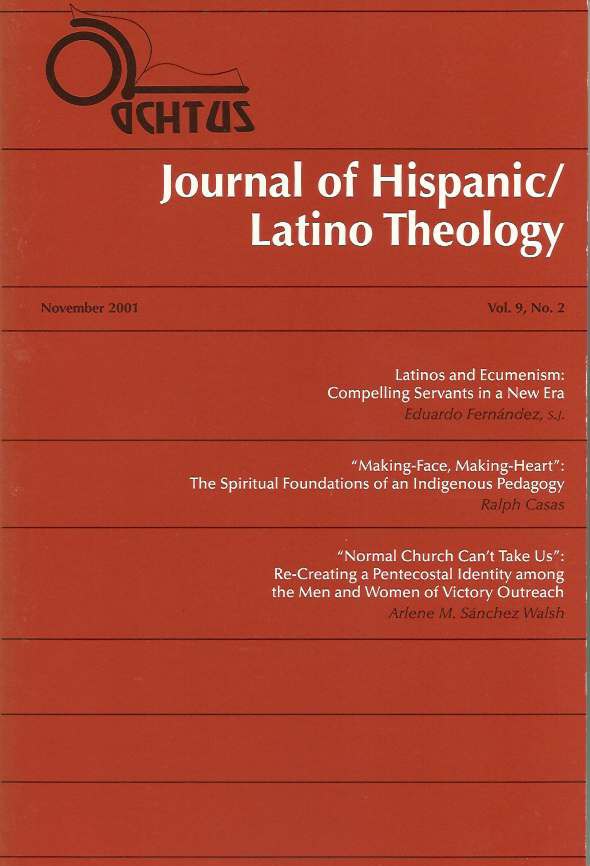Volume 9, Number 2
(2001)
Ecumenism and Paths to Peace in a Time of Terror
The June 2001 Fourteenth Annual Colloquium and General Meeting of the Academy of Catholic Hispanic Theologians of the United States, held at the Catholic Theological Union in Chicago, took as its theme
“New Directions in Ecumenism: Ministry and Theology.”
This was by no means the first time that members of ACHTUS have focused on ecumenism. At the colloquium, ecumenism came to center stage as the focus of the
teología de conjunto that characterizes the colloquium’s proceedings. In the wake of the tragic events of September 11, 2001, events too horrible for any of us to have imagined, the need for ecumenical and inter-religious understanding is more pressing than ever, and by no means only among Latina/os. The fruits of hatred and intolerance, fueled by ignorance and misunderstanding, continue to surface in deadly ways in every part of a world that daily grows smaller and more interconnected. It is our hope that the articles that appear in this issue of the IHLT will contribute in some small measure to the advancement of the ecumenical and interreligious imperative.
We begin with “Latinos and Ecumenism: Compelling Servants in a New Era,” by
Eduardo Fernández, S.J., of the Jesuit School of Theology at Berkeley. This article, based on Fernández's ACHTUS Presidential Address, frames in deeply personal terms his conviction that U.S. Latina/os are strategically placed to contribute in important ways to a new
kairos for ecumenism, a time ripe with possibilities and opportunities.
In “Making-Face, Making-Heart: The Spiritual Foundations of an Indigenous Pedagogy,”
Ralph Casas of Cerritos College (Norwalk, California) argues for the construction of pedagogical strategies
that respect the learner’s context and cognitive framework, aiming for the development of an indigenous ecology of education. In keeping with the colloquium theme, he brings the insights of Latin American and U.S. Latino/ a theology into consideration, suggesting that the dialogue between Christian and indigenous Mesoamerican religious traditions can be both productive and practical. We close with ’“Normal Church Can’t Take Us’: Re-Creating a Pentecostal Identity among the Men and Women of Victory Outreach,” by
Arlene M. Sánchez Walsh of DePaul University in Chicago. Sánchez Walsh is familiar to readers of the JHLT from her contribution to the August 2000 issue (8:1), "Workers for the Harvest: The Latin American Bible Institute and the Institutionalization of the Latino Pentecostal Identity.”
— Jean-Pierre Ruiz




